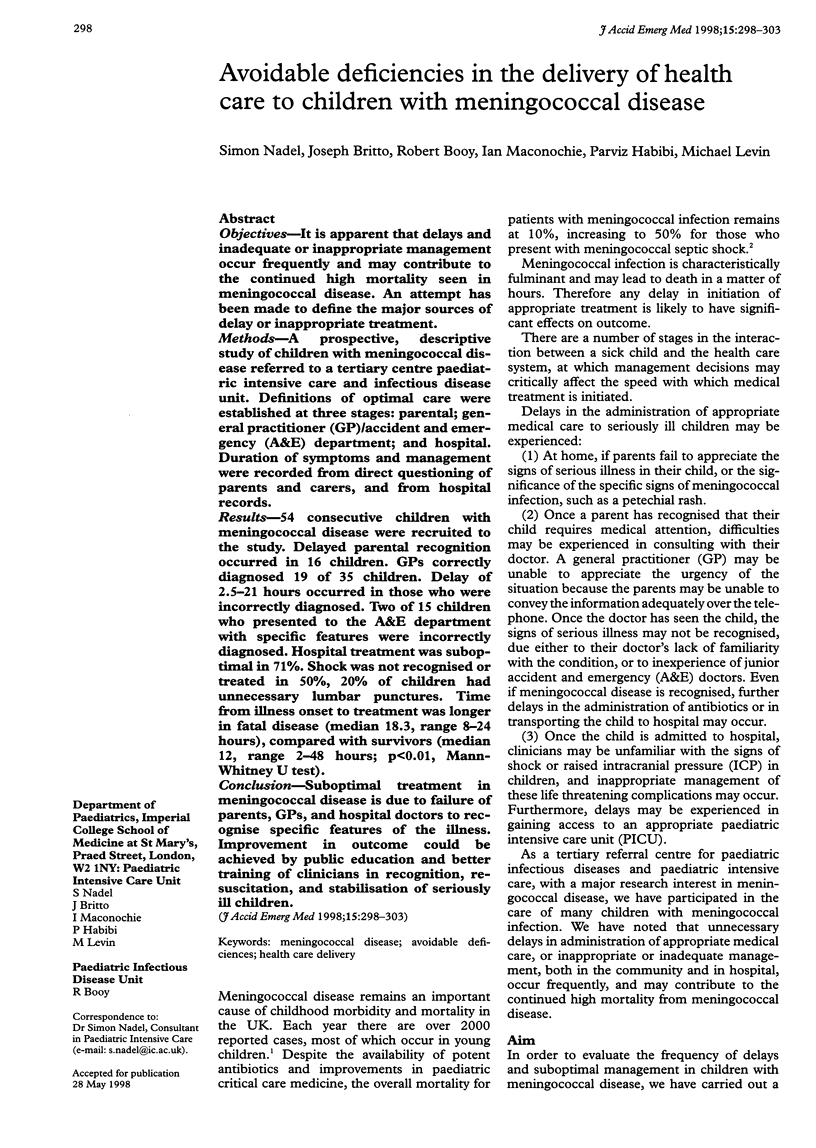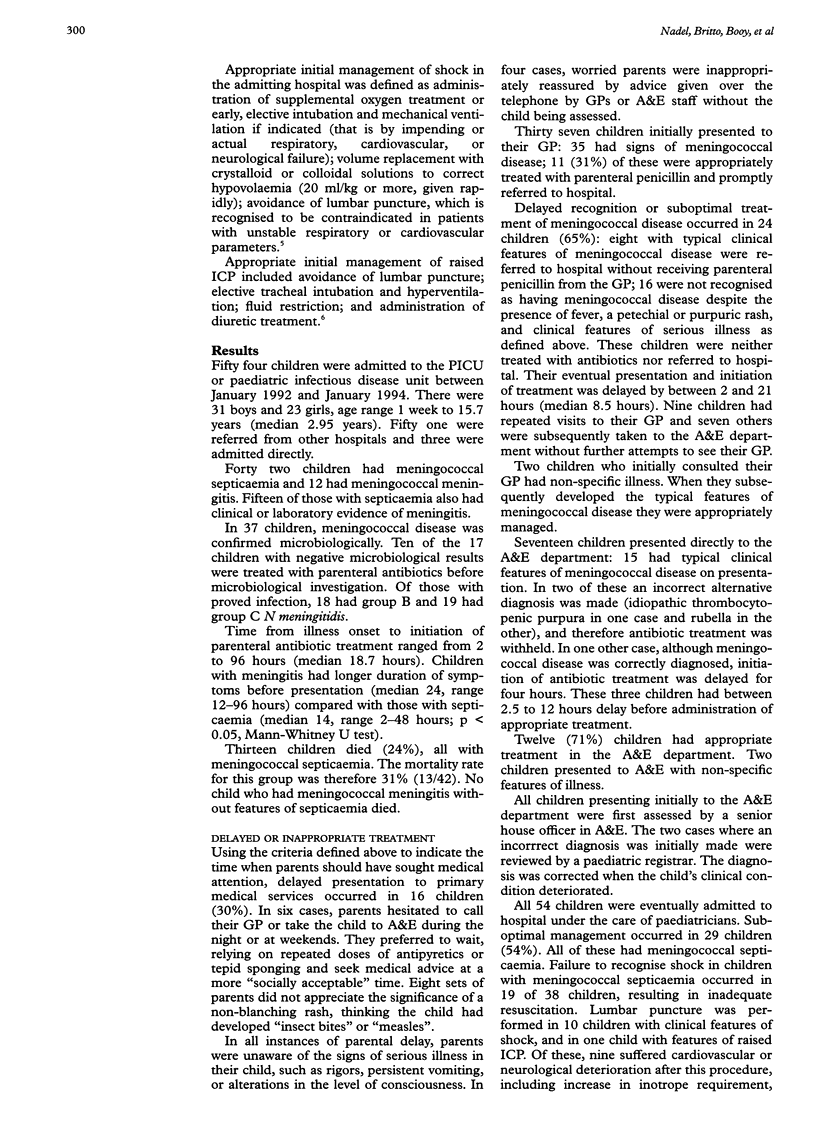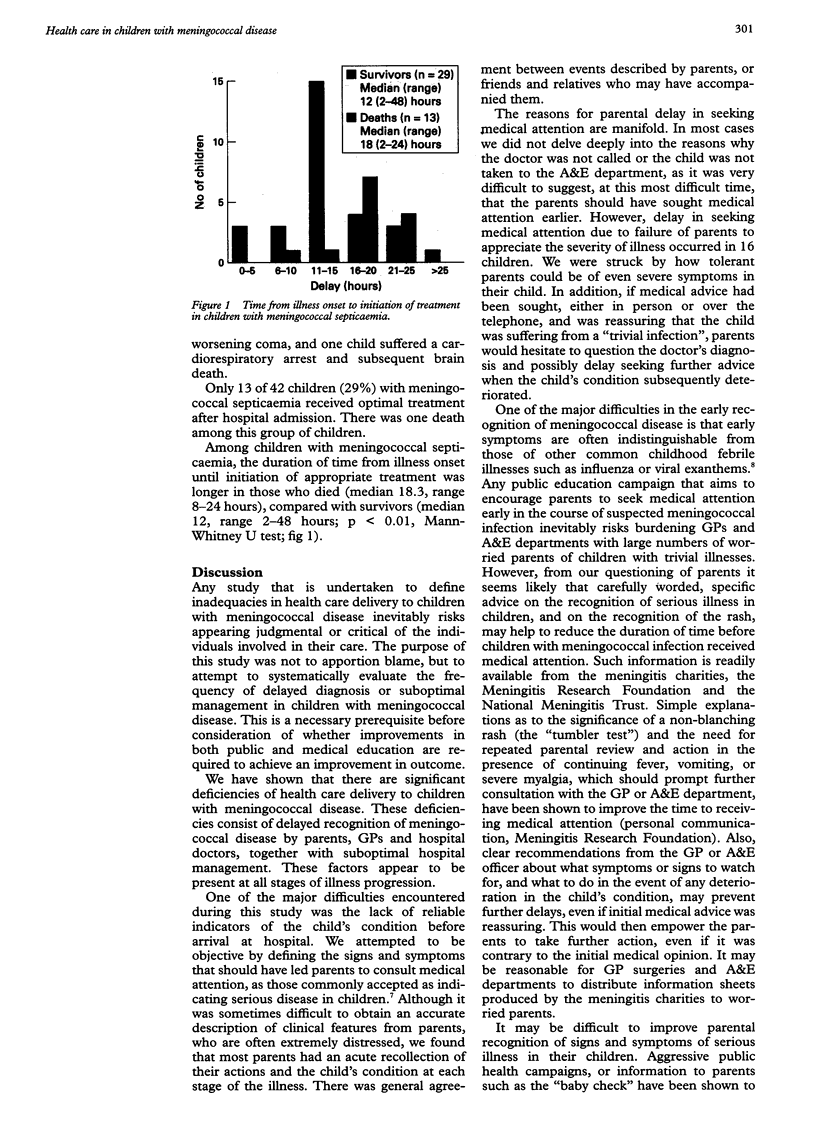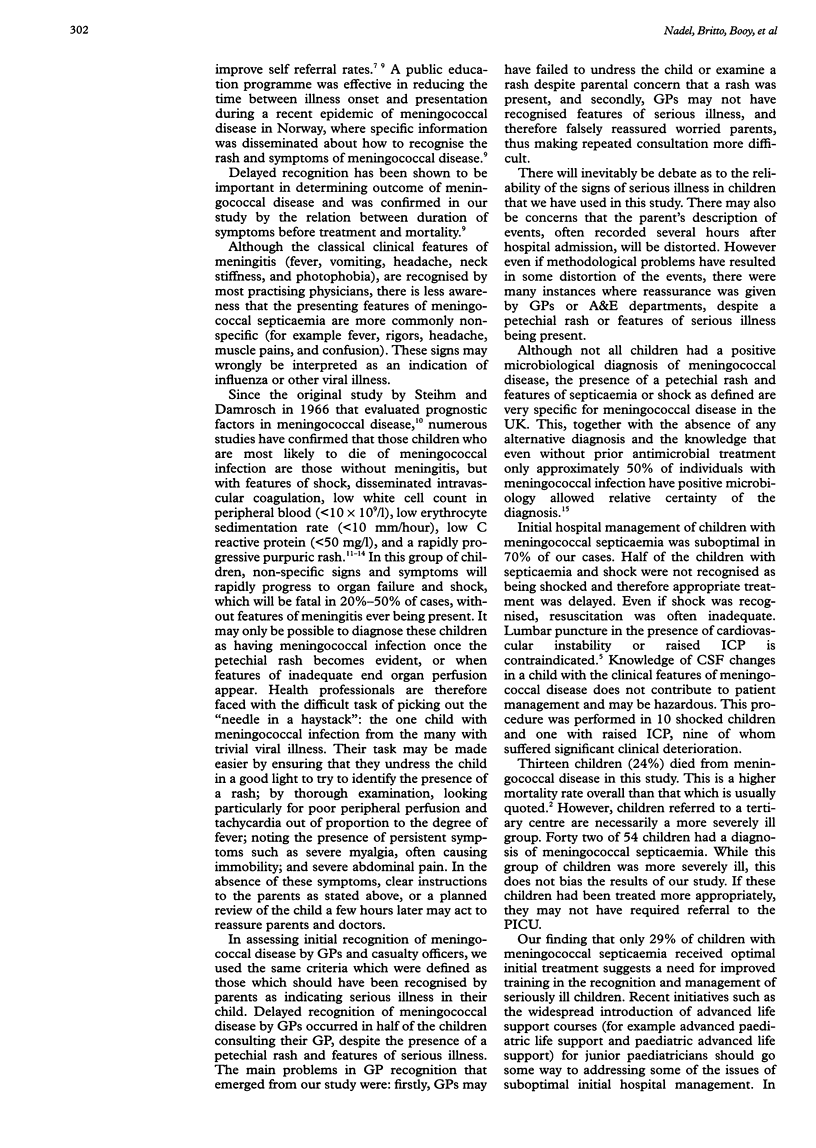Abstract
OBJECTIVES: It is apparent that delays and inadequate or inappropriate management occur frequently and may contribute to the continued high mortality seen in meningococcal disease. An attempt has been made to define the major sources of delay or inappropriate treatment. METHODS: A prospective, descriptive study of children with meningococcal disease referred to a tertiary centre paediatric intensive care and infectious disease unit. Definitions of optimal care were established at three stages: parental; general practitioner (GP)/accident and emergency (A&E) department; and hospital. Duration of symptoms and management were recorded from direct questioning of parents and carers, and from hospital records. RESULTS: 54 consecutive children with meningococcal disease were recruited to the study. Delayed parental recognition occurred in 16 children. GPs correctly diagnosed 19 of 35 children. Delay of 2.5-21 hours occurred in those who were incorrectly diagnosed. Two of 15 children who presented to the A&E department with specific features were incorrectly diagnosed. Hospital treatment was suboptimal in 71%. Shock was not recognised or treated in 50%, 20% of children had unnecessary lumbar punctures. Time from illness onset to treatment was longer in fatal disease (median 18.3, range 8-24 hours), compared with survivors (median 12, range 2-48 hours; p < 0.01, Mann-Whitney U test). CONCLUSION: Suboptimal treatment in meningococcal disease is due to failure of parents, GPs, and hospital doctors to recognise specific features of the illness. Improvement by public education and better training of clinicians in recognition, resuscitation, and stabilisation of seriously ill children.
Full text
PDF





Images in this article
Selected References
These references are in PubMed. This may not be the complete list of references from this article.
- Bone R. C. Let's agree on terminology: definitions of sepsis. Crit Care Med. 1991 Jul;19(7):973–976. doi: 10.1097/00003246-199107000-00024. [DOI] [PubMed] [Google Scholar]
- Cartwright K. A., Jones D. M. ACP Broadsheet 121: June 1989. Investigation of meningococcal disease. J Clin Pathol. 1989 Jun;42(6):634–639. doi: 10.1136/jcp.42.6.634. [DOI] [PMC free article] [PubMed] [Google Scholar]
- Gedde-Dahl T. W., Bjark P., Høiby E. A., Høst J. H., Bruun J. N. Severity of meningococcal disease: assessment by factors and scores and implications for patient management. Rev Infect Dis. 1990 Nov-Dec;12(6):973–992. doi: 10.1093/clinids/12.6.973. [DOI] [PubMed] [Google Scholar]
- Gedde-Dahl T. W., Høiby E. A., Brandtzaeg P., Eskerud J. R., Bøvre K. Some arguments on early hospital admission and treatment of suspected meningococcal disease cases. NIPH Ann. 1990 Dec;13(2):45–60. [PubMed] [Google Scholar]
- Havens P. L., Garland J. S., Brook M. M., Dewitz B. A., Stremski E. S., Troshynski T. J. Trends in mortality in children hospitalized with meningococcal infections, 1957 to 1987. Pediatr Infect Dis J. 1989 Jan;8(1):8–11. doi: 10.1097/00006454-198901000-00003. [DOI] [PubMed] [Google Scholar]
- Hodgetts T. J., Brett A., Castle N. The early management of meningococcal disease. J Accid Emerg Med. 1998 Mar;15(2):72–76. doi: 10.1136/emj.15.2.72. [DOI] [PMC free article] [PubMed] [Google Scholar]
- Leclerc F., Beuscart R., Guillois B., Diependaele J. F., Krim G., Devictor D., Bompard Y., van Albada T. Prognostic factors of severe infectious purpura in children. Intensive Care Med. 1985;11(3):140–143. doi: 10.1007/BF00258539. [DOI] [PubMed] [Google Scholar]
- Lewis L. S. Prognostic factors in acute meningococcaemia. Arch Dis Child. 1979 Jan;54(1):44–48. doi: 10.1136/adc.54.1.44. [DOI] [PMC free article] [PubMed] [Google Scholar]
- Sinclair J. F., Skeoch C. H., Hallworth D. Prognosis of meningococcal septicaemia. Lancet. 1987 Jul 4;2(8549):38–38. doi: 10.1016/s0140-6736(87)93067-4. [DOI] [PubMed] [Google Scholar]
- Stiehm E. R., Damrosch D. S. Factors in the prognosis of meningococcal infection. Review of 63 cases with emphasis on recognition and management of the severely ill patient. J Pediatr. 1966 Mar;68(3):457–467. doi: 10.1016/s0022-3476(66)80250-0. [DOI] [PubMed] [Google Scholar]



